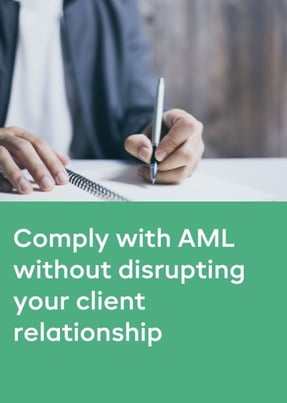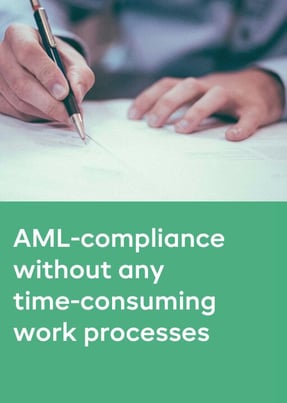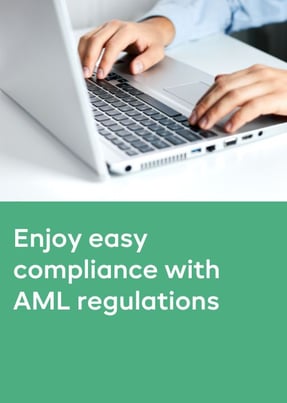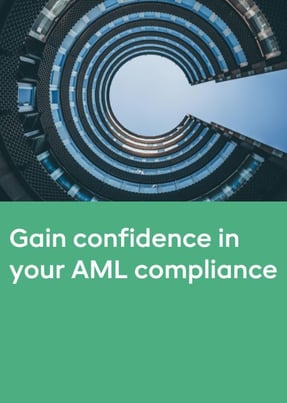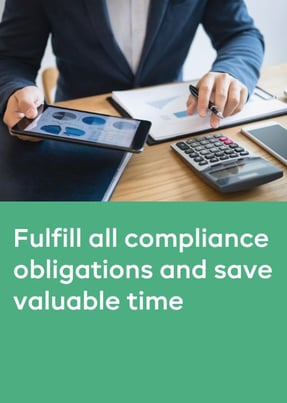- Products
- RegLab for ...
- Knowledge centre
Download the AML glossary >
 Discover the essential AML compliance terminology and gain instant access to a comprehensive guide
Discover the essential AML compliance terminology and gain instant access to a comprehensive guide - The company
Working at RegLab >
Join RegLab as the new Product Owner of our software tool and change the way the legal community approaches anti-money laundering.
There may not be any vacancies that perfectly match your profile, but that does not mean there is no room for someone who can improve RegLab.
- Book a demo
Have you ever reported suspicious transactions?
Question no. 7 from the supervisor:
How should you respond when the supervisor asks you, “Have you ever submitted a report of a suspicious transaction?” The AML framework imposes two core obligations. First, you must verify the identity of your clients. Second, you are required to report any suspicious transaction. In this article, we focus on that second obligation.
When must you report a suspicious transaction?
Lawyers, accountants, tax advisers, civil-law notaries, and investment firms are required to report a transaction as soon as there is a suspicion of a potentially suspicious transaction.
Nonetheless, many gatekeepers remain hesitant to report. It may feel like betraying a client or admitting failure. However, this hesitation is misplaced. Filing a report is a legal obligation and an integral part of professional duty.
How does the reporting process work?
You must report both completed and attempted suspicious transactions. These reports are most of the times submitted via the local FIU reporting portal. Your national FIU is responsible for preventing and combating money laundering and terrorist financing, aiming to safeguard the integrity of the financial system. A transaction is assessed as suspicious based on objective and subjective indicators.
What makes a transaction suspicious?
Objective indicators refer to situations that must always be reported to the FIU, regardless of the context. Examples include cash transactions of €10,000 or more using cash, cheques, prepaid cards, or similar instruments; large sums of cash exchanged into other currencies or different denominations; transactions involving high-risk countries; and transactions already reported to law enforcement in relation to money laundering or terrorist financing.
Subjective indicators rely on your own professional judgment. You must be able to explain why the transaction is suspicious. For instance, a transaction may trigger concern that it is linked to money laundering or terrorist financing. FIU-Netherlands provides tailored indicators for each reporting category.
Number of reports varies by sector
In the notarial sector, reports are made more frequently. This is because nearly all notarial activities fall under the scope of AML. Among lawyers, the situation is more nuanced. A client due diligence is often performed at intake, but new reporting obligations may arise as the matter develops, for instance when real estate or shares become involved.
How do you provide a proper answer to the supervisor?
Supervisory authorities primarily want to see that you have made a conscious, well-documented decision. If you have handled thousands of matters over four years and have never submitted a single report, you must be able to explain why. The key to this is documentation.
Many decisions are made informally during internal discussions. However, if you do not record those decisions, you cannot later justify them. This also applies to decisions not to report a transaction.
Practical approach
Use AML software, such as that provided by RegLab, to easily record internal considerations, involve team members in decisions, store complete matter files, and demonstrate that you have fulfilled your duty of care.
By doing so, you show the supervisory authority that your firm takes AML compliance seriously, even if a transaction is ultimately not reported.
So, what should you do?
Understand both the objective and subjective indicators. Make a considered and defensible decision. Always document your reasoning. Use tools to manage reporting and internal communication. Do not hesitate to report. It is not an admission of guilt, but a statutory obligation.
Themed file: fully prepared for the supervisor’s audit
This article is part of a number of articles and downloads that will help you prepare yourself for the supervisor’s visit. This content is based on a supervisor's FAQs during an audit. Do you want to be 100% AML-proof and ready for the supervisor’s visit? Find all FAQs in our Knowledge Centre.
Knowledge centre
Download the whitepaper: "AML misconceptions"
We list ten myths about money laundering prevention and provide practical tips to improve your process.
